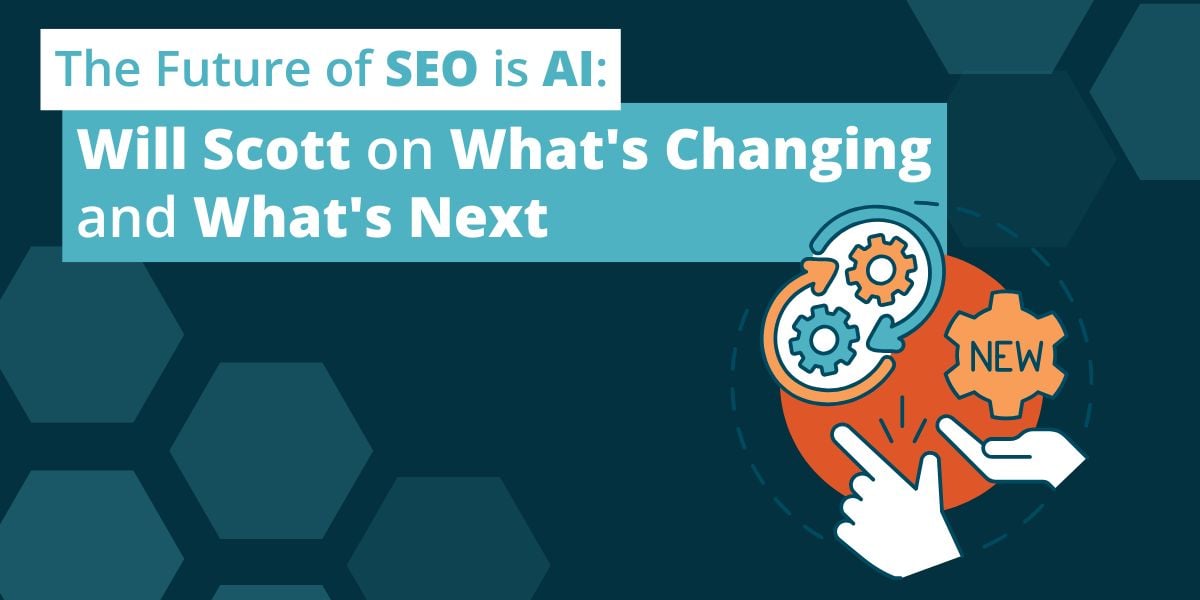The Future of SEO Is AI: Will Scott on What’s Changing and What’s Next
August 15th, 2025 by
You’ve probably noticed search isn’t what it used to be. The “10 blue links” are buried under AI-generated answers, featured snippets, and who-knows-what pulled from who-knows-where.
So if you’re in SEO, the obvious question is: what now?
That’s the focus of a recent conversation between Will Scott, CEO of Search Influence, and Will Brooks on the Partnerships for Profit podcast. They didn’t talk theory. They talked about real-world shifts in how AI is reshaping search and what marketers can do to stay relevant.
🎧 Watch the full episode on YouTube
The Big Shift: From Keywords to Context
One of Will’s most important points is that SEO isn’t going away. It’s just evolving.
“It’s not about chasing rankings anymore,” he says. “It’s about making sure the machine understands that you are the best result.”
That means writing for both humans and machines. Google’s AI Overviews, ChatGPT, and Gemini all rely on systems that prioritize context, relationships, and structure — a big change from the days of exact-match optimization.
What This Looks Like in Practice
If you’re thinking, “Okay, so what should I actually be doing differently?” here’s what came out of the episode:
- Structure matters more than ever. Use schema, clear headings, and answer-based formatting. Will explained how internal linking and semantic cues are essential to showing up in AI results.
- RAG is real. That’s Retrieval-Augmented Generation — how AI pulls from sources like your website to answer a question. If your content isn’t clear and accessible, it won’t be pulled. Tools like the Web Content Chunker can help structure content for better AI processing.
- AI tools can help, but don’t replace strategy. Will talked about using AI SEO tracking tools to speed up workflows, but emphasized they’re only effective when used by people who know what they’re doing.
“The AI’s not going to save you,” Will joked. “But it might save you time if you use it right.”
One example he shared: A healthcare client where AI-assisted content helped speed up landing page creation by 40%, but only after a strategist built a proper outline and prompt structure first. Without that, the outputs were generic and flat.
So, What Should You Do Now?
Here’s the short version:
- Audit your content. If it’s full of fluff, unclear, or hard to navigate, it’s probably invisible to AI systems. Comprehensive site audits can help identify these gaps.
- Write with structure. Think FAQs, summaries, and natural language, not walls of text.
- Understand your entities. Your brand, products, and topics need to be clearly defined so search engines know how they connect. Technical SEO expertise plays a big role here.
- Experiment with AI, but don’t blindly trust it. Use it to brainstorm, draft, and revise, but always edit with human judgment.
Why This Conversation Matters
This episode is worth your time not because it has “hot takes” but because it grounds big ideas in practical reality. Will doesn’t hype the tech. He talks about what’s working (and not) across real campaigns, including insights from the latest SEO trends and challenges his team is navigating.
If you’re trying to figure out how to keep your content visible in an AI-powered search environment, this is a solid place to start.
🎙️Here’s the full episode if you want to dig deeper.
One Last Thought
SEO isn’t dead. It’s just growing up. And like any maturing system, it rewards clarity, credibility, and consistency over gimmicks.
If you’re willing to adapt, there’s a real opportunity to stand out, not just in search results, but in the answers users actually see. Want to see how AI-ready your website is? Check out our AI Website Grader for a comprehensive assessment.
👤Follow Will Scott on LinkedIn 🏢Learn more about Search Influence


